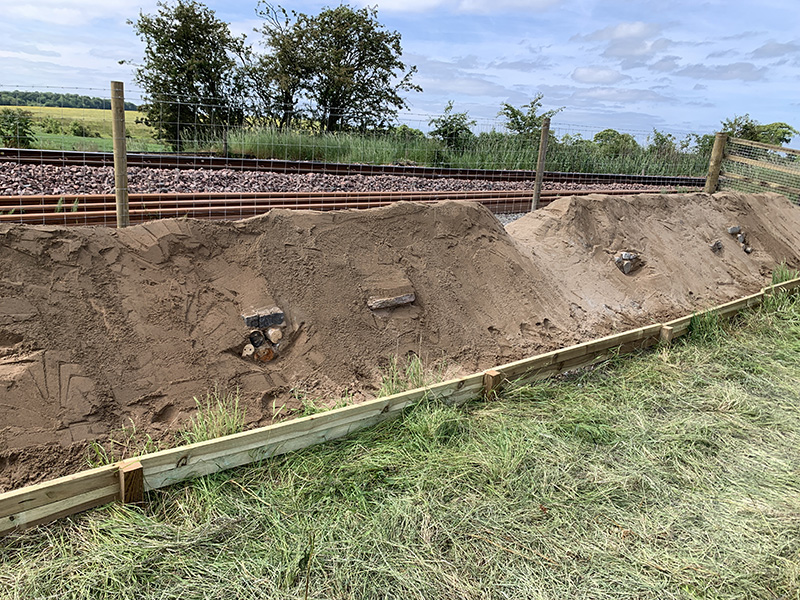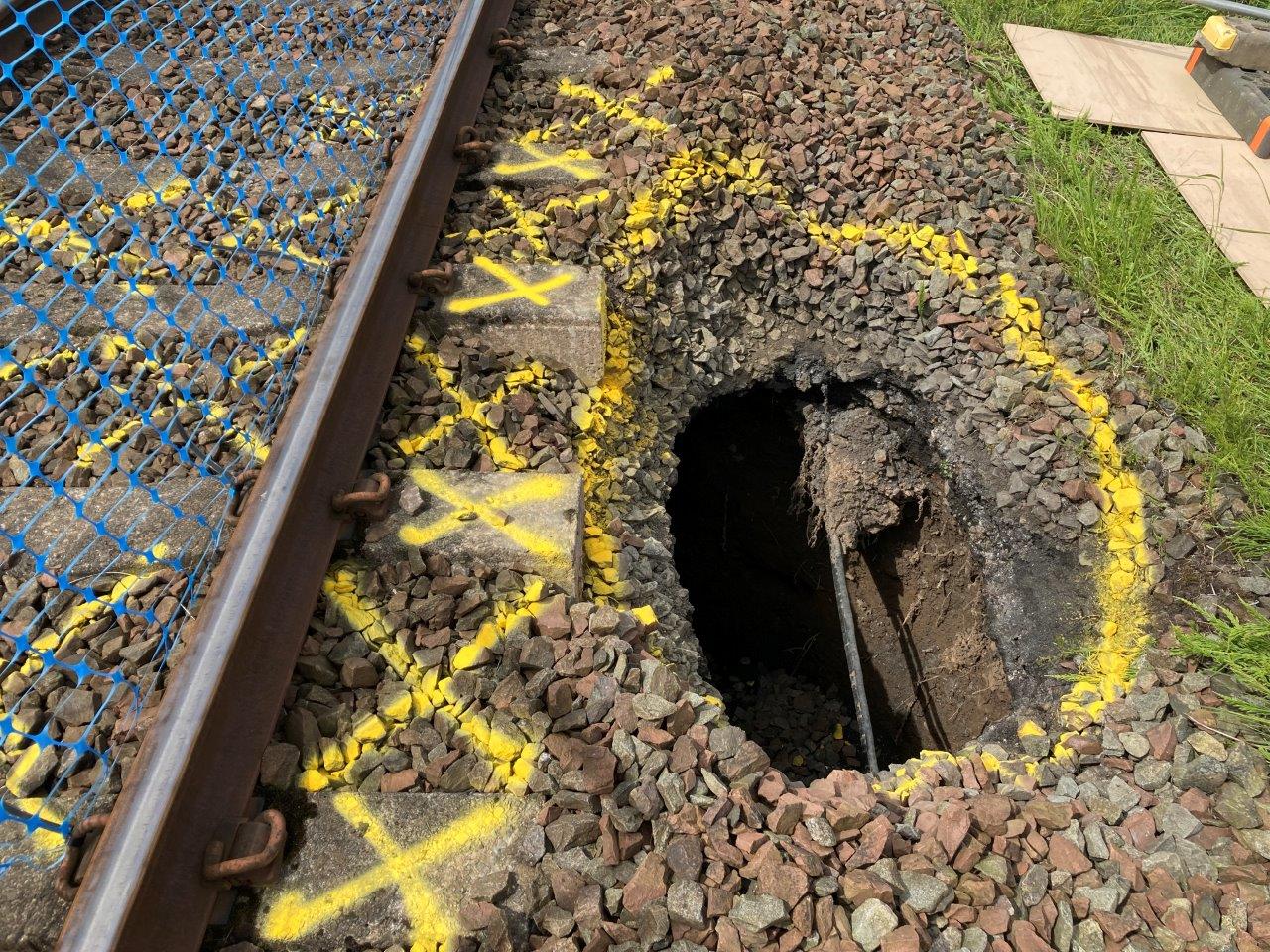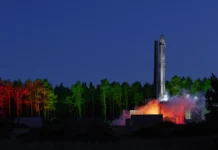
NETWORK Rail has installed a bee bank next to a repaired sinkhole in Ayrshire as part of efforts to enhance the biodiversity around the country’s railway.
The organisation completed emergency repair works last year on a section of the line between Kilmarnock and Barassie after the large hole appeared close to the tracks. Following the work, a team from the organisation and Scottish Woodlands installed a bee bank.

The bee bank is designed to support several solitary bee species, including mining bees that favour the bare, sandy banks for burrowing. It provides warm, sheltered patches of bare ground where solitary mining bees can nest.
A number of logs, canes and rocks have also been placed into the structure to provide additional habitat for other species that favour alternative nesting habitats.
Thomas Podger, senior project engineer at Network Rail Scotland, said, “I’m pleased our team has worked to create the first bee bank on our network and has been able to create a place for nature in what would otherwise be unused ground.
“Aligning biodiversity enhancement projects to the B-Line corridors can help us achieve a greater positive impact for each project and allows us to be part of a wider joined-up approach to conserving our pollinator species.
“This site supports our goal to promote biodiversity within our lineside. With thanks to Scotia Seeds for advising on a native seed mix, Scottish Woodlands for building the bee bank and our in-house ecologist for her advice.”
The area adjacent to the bee bank was seeded with a seed mix appropriate for the substrate on site and was selected in line with advice provided by Scotia Seeds.The native dry meadow wildflower mix aims to increase the diversity of species in the area and provide the world’s pollinators with food, shelter and places to breed.
The site sits close to a B-Line corridor and the River Irvine which Network Rail explained is an ideal position to promote biodiversity and enhance connectivity with the railway corridor and surrounding habitats.








